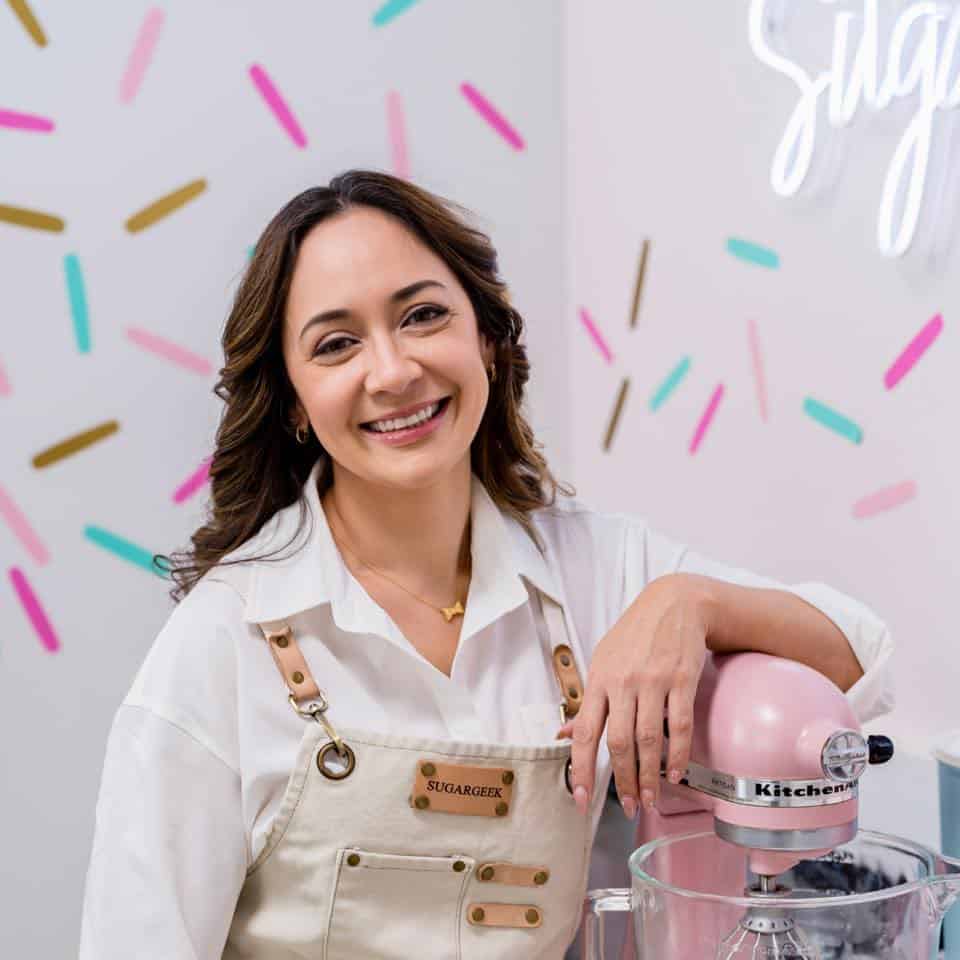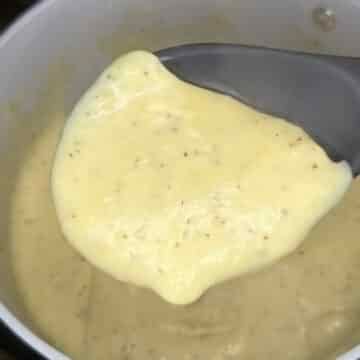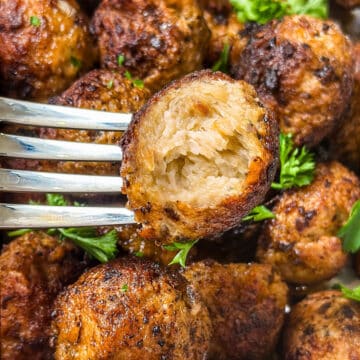Sometimes a recipe calls for uncooked egg whites like my easy buttercream or royal icing. You may want to pasteurize (heat treat) your uncooked eggs before using them to reduce the chances of food-borne illness.

WHAT ARE PASTEURIZED EGG WHITES?
Pasteurizing is the process of gentle heating to kill food born illnesses and make a product safe to drink or eat. Many things are pasteurized, such as orange juice, milk, and wine. Pasteurized egg whites are safe for anyone to eat.
You can purchase pasteurized egg whites in most grocery stores. Pasteurized egg whites come in a carton, usually in the same area where you would buy regular eggs. The word "pasteurized" is one the box but sometimes can be very small and hard to locate. Don't worry, if the egg whites are in a box then it can be safely assumed they are already pasteurized.
Buying eggs that are pasteurized (in the US) is more expensive than purchasing regular eggs so it can be more cost-effective and convenient to pasteurize your own eggs at home.
HOW TO PASTEURIZE EGGS
If you can't find pasteurized egg whites then you can pasteurize them yourself! Chefs pasteurize their own eggs all the time in restaurants. To pasteurize an egg, the yolk must reach an internal temperature of 138ºF. Don't worry, an egg will scramble at a mich higher temperature so you're not going to cook your eggs as long as you watch the temperature carefully.
The pasteurized eggs will still have the consistency of raw eggs and can be stored in the refrigerator after pasteurization. They can be used just like any egg so if you need just the whites, you can separate the egg yolks from the whites and have pasteurized egg whites.
STEP 1 - Place the eggs you want to pasteurize into a medium-sized saucepan in an even layer. Cover with water so that there is 1" of water above the eggs. Then remove your eggs. You don't want them in there until your water is at the right temp.
STEP 2 - Heat the water to 140ºF using a thermometer to monitor the temperature. Any warmer than 142ºF and you're going to cook your eggs.
Pro-tip - If you have a Sous Vide, this process is incredibly easy because the sous vide will keep the water at the exact temperature you need. To pasteurize eggs using a Sous Vide, set the temperature to 135ºF and allow them to pasteurize for 75 minutes. This lower temperature keeps the protein of the egg white more intact and the longer pasteurization time further reduces the risk of pathogens.
STEP 3 - Place your (room temperature) eggs in the water. Heat the eggs for 3 ½ minutes. Make sure the temperature of the water never goes above 142ºF or you will cook your eggs.
NOTE: These times and temperatures are based on the recommendations of International Egg Pasteurization Manual.
STEP 4 - Transfer your pasteurized eggs into a bowl of cold water to stop the heating process. Then store them in the fridge to use later! That's it!
If you are pasteurizing extra-large eggs from your own chickens then heat them for 5 minutes instead of 3.
NOTE: It is recommended that pregnant women do not eat under-cooked eggs. You can read more about egg safety here.
The risk of getting salmonella from a raw egg is about 1 in 20,000.
This is not a 100% guaranteed way of removing all risks of pathogens, but if done properly it does reduce the risks greatly.
Related Recipes
Recipe

Equipment
- Medium Size Saucepan
- Kitchen Thermometer (or sous vide)
Ingredients
- 6 large eggs room temperature
- 6 cups water or enough to cover the eggs in the pot
Instructions
- Place your eggs into the saucepan (you can use as many as you want as long as they are in one layer and not stacked up)
- Add enough water to cover your eggs by 1". REMOVE YOUR EGGS BEFORE HEATING THE WATER.
- Place your thermometer into the water and begin heating the water to 140ºF. Adjust the heat as necessary to ensure the water does not get hotter than 142ºF.
- Add your eggs back to the water and continue watching the temperature to make sure the heat is not rising or falling.
- After three minutes, remove the eggs from the water with a spoon and transfer them to a bowl of cold water. Let them cool for 5 minutes.
- Dry your eggs and use them right away or store them in the fridge like you would any other egg.











Therese A says
Great information! Thank you!
Rhiannon Lowrey says
You should remove this. This is false and misleading information regarding the pasteurization process. You cannot properly pasteurize eggs in under 5 mins.
Dana says
Can we use this method pasteurize our own eggs to make your easy buttercream recipe? Because i cant find them in my country.
Thanks super Liz <3
Elizabeth Marek says
Yes you can
Robyn says
Hi Liz
What kind of thermometer? I know that probably a silly question but I’m new at this kitchen thing. Trying to gather all the info I can. Thanks for your help!
Elizabeth Marek says
Any kitchen thermometer will work! They sell them in most kitchen supply sections at grocery stores
Tracy Lorenzana says
thank you so much for always shaing your recipes!!:) you have inspired and elevated my baking the past couple of years.
JanetB says
I get eggs from my chickens and this is wonderful information. Never knew that I can do it myself.
Barb says
Will these whip up to use in chiffon pie?
Elizabeth Marek says
Yes
Maggie Boyle says
thank you, I recently got a sous vide machine and used it to pasteurize my eggs. I want to make eggnog and meringue cookies. I feel much safer now using the raw eggs.
Kathleen D says
Awesome information. Thank you.